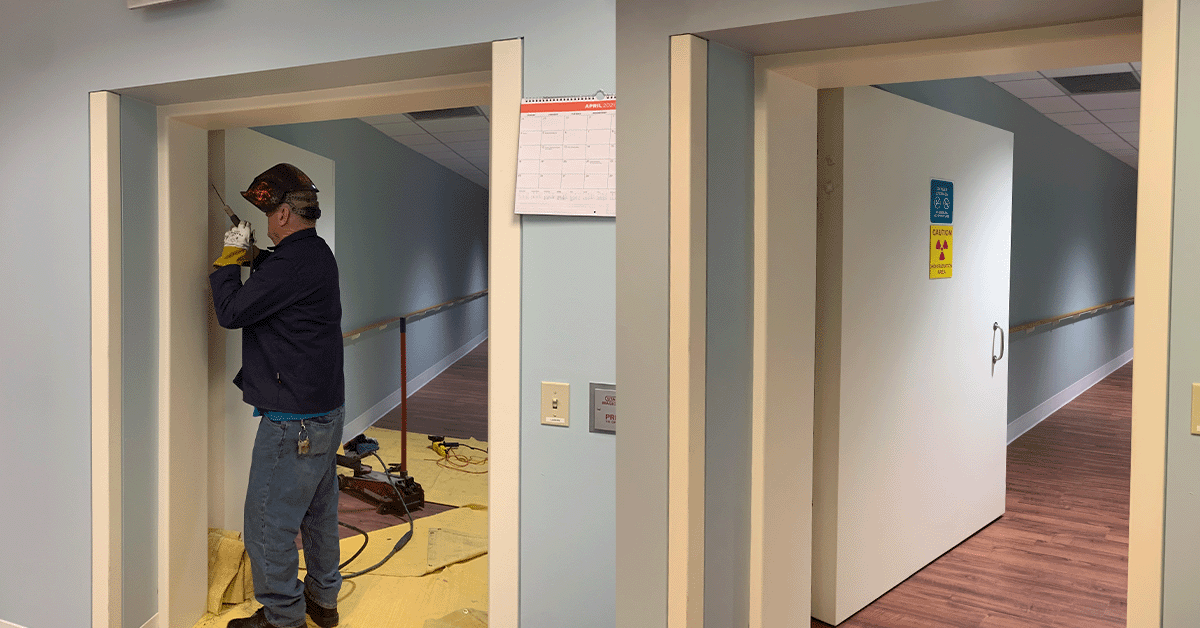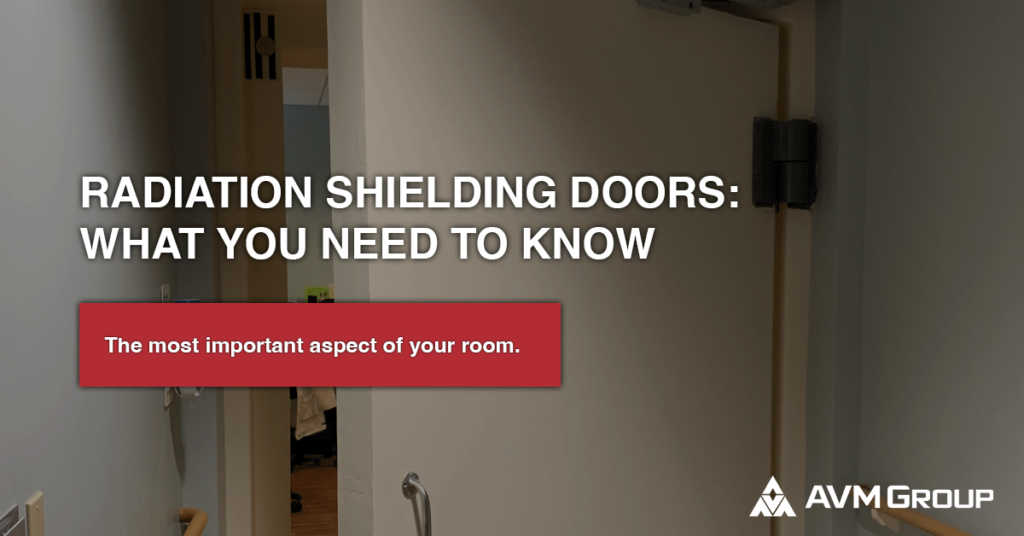*This post is part of a much larger pillar blog: The Ultimate Radiation Shielding Guide
Table of Contents
ToggleIntroduction
Radiation shielding doors are an important tool for protecting people and the environment from the harmful effects of ionizing radiation. These doors are used in a variety of settings, including nuclear power plants, medical facilities, and research labs, to reduce the amount of radiation that is emitted or absorbed.
In this blog, we talk about everything you need to know regarding radiation shielding doors.
Radiation Shielding Doors Offer Extreme Safety
One of the main benefits of radiation shielding doors is their ability to protect individuals from the harmful effects of ionizing radiation. This is especially important for workers in industries that use radiation, as well as for patients who are undergoing medical procedures that involve radiation.
Radiation Shielding Doors Protect the Environment
Radiation shielding doors can also help to protect the environment from the harmful effects of radiation.
For example, nuclear power plants use shielding to prevent radiation from being released into the air or water.
GET THE LATEST INDUSTRY NEWS DELIVERED TO YOUR INBOX
Stay on the forefront of the shielding industry with our weekly e-newsletter.
Radiation Shielding Doors for Medical Applications
In medical settings, radiation shielding doors can improve the accuracy of imaging procedures, such as X-rays and CT scans. By reducing the amount of scatter radiation, shielding can help to produce clearer images, which can be crucial for making an accurate diagnosis.
In addition, radiation shielding doors can increase the efficiency of a process by reducing the amount of background radiation that can interfere with experiments and measurements.
The Different Types of Radiation Shielding Doors
There are several different types of radiation shielding doors, each with its own unique properties and benefits.

Concrete Radiation Shielding Doors
Concrete doors are made of high density blocks of concrete and are typically used in applications where a high level of shielding is required. These doors are heavy and more affordable, but are bigger, meaning it may be more expensive and time-consuming to install compared to other types of shielding doors.
Lead-Lined Radiation Shielding Doors
Lead-lined doors are made by installing a layer of lead inside the core of a steel door. Lead is an effective shielding material due to its high density and ability to absorb radiation. Lead-lined doors are more expensive than concrete, but are also easier to install and take up less room.
Steel Radiation Shielding Doors
Steel-clad doors are made by encasing a metal door in a layer of steel plates. These doors are relatively lightweight and can be easily installed, but they do not provide as much shielding as concrete or lead-lined doors at the same thickness.
Why the Thickness of Your Door Matters
In addition to the type of material used, the thickness of the radiation shielding door is also an important factor to consider.
The thicker the door, the more shielding it will provide.
However, it is important to balance the need for shielding with the practicality of the door’s size and weight.
When choosing a radiation shielding door, it is important to consider the specific needs of the application.
Factors to consider include the type and intensity of the radiation, the level of shielding required, and the size and weight of the door. It may also be necessary to consider the cost and availability of different types of doors, as well as any building codes or regulations that may be in place.
Conclusion
In conclusion, radiation shielding doors are an important tool for protecting people and the environment from the harmful effects of ionizing radiation.
By reducing the amount of radiation that is emitted or absorbed, these doors can help to promote health, safety, and accuracy in a variety of settings. There are several different types of radiation shielding doors to choose from, each with its own unique properties and benefits.
By considering the specific needs of the application and the available options, it is possible to find the right radiation shielding door tomeet the needs of any situation.
Does your business need a new radiation shielding door? Not sure where to start? Contact us.



